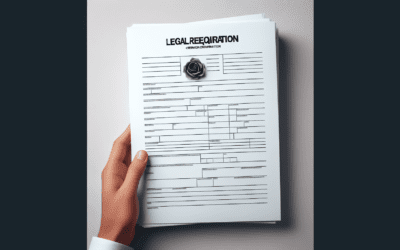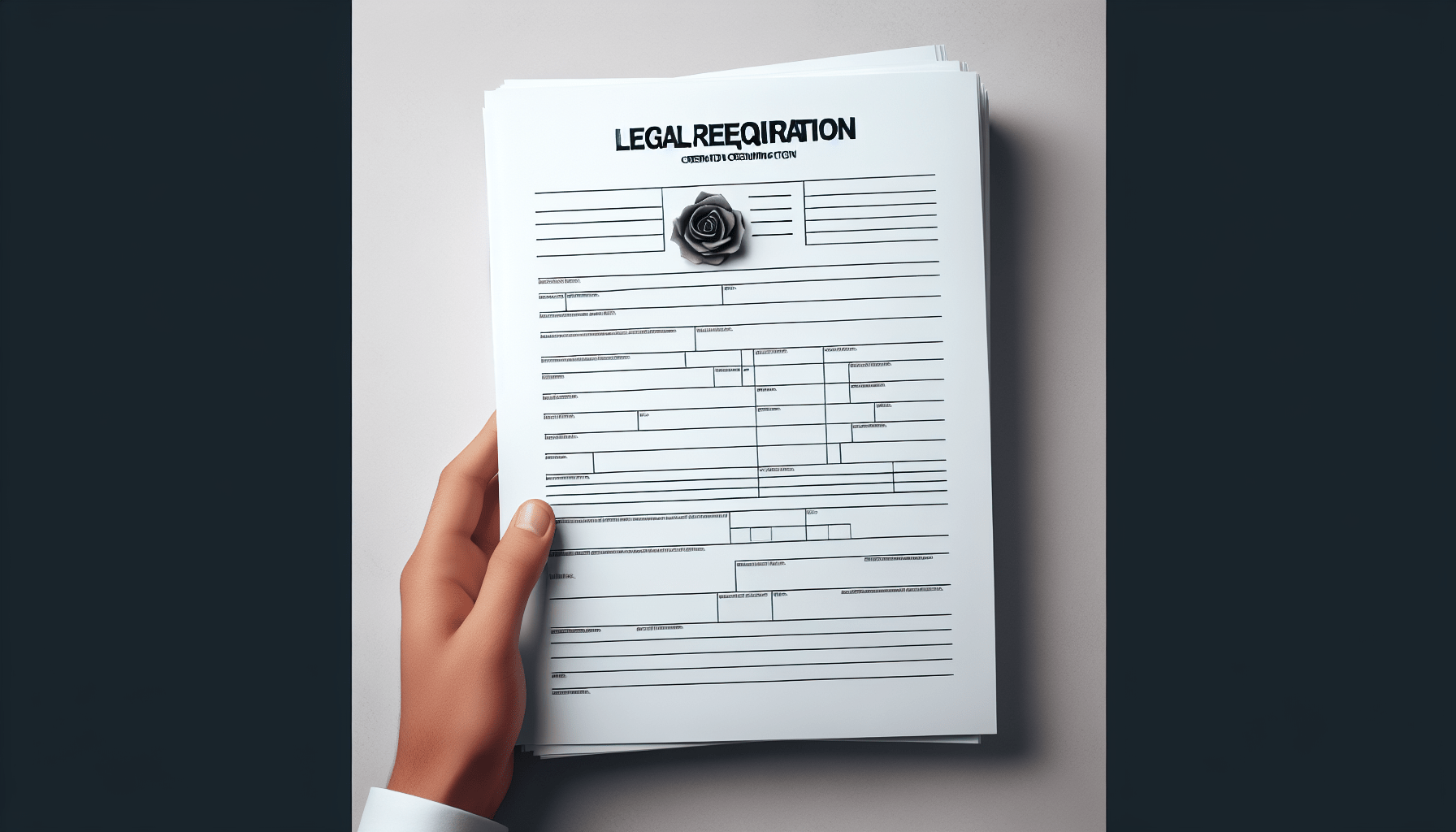Are you curious about the average funeral costs in Atlanta? Planning a funeral can be an overwhelming and emotional task, and understanding the costs involved is an important aspect. In this article, we will explore the average funeral costs in Atlanta, providing you with valuable information to help you make informed decisions during this difficult time. From the cost of burial plots and caskets to embalming and funeral services, we will break down the expenses involved in a typical funeral in Atlanta, giving you a better understanding of what to expect and how to plan accordingly.
Factors Affecting Funeral Costs in Atlanta
Choice of Funeral Home
One of the biggest factors that affects funeral costs in Atlanta is your choice of funeral home. Different funeral homes have varying pricing structures and service offerings, so it’s important to shop around and compare prices. Consider factors such as reputation, facilities, and the overall experience provided by the funeral home when making your decision.
Type of Service
The type of funeral service you choose can also impact the overall cost. Traditional funerals, which typically include a visitation, funeral ceremony, and burial, tend to be more expensive than simpler options such as direct burials or cremations. It’s important to think about what suits your personal preferences, as well as your budget, when selecting the type of service.
Casket Selection
Casket selection is another significant factor that can affect funeral costs. Caskets come in a wide range of materials, designs, and price points. While some opt for elaborate and expensive caskets, others may choose more affordable options. It’s important to remember that the casket is not only a reflection of your loved one, but also a significant expense to consider in your overall budget.
Embalming and Body Preparation
If you opt for a traditional burial, embalming and body preparation costs may come into play. Embalming is the process of preserving the body, and it can be an additional expense. While embalming is not required by law in every case, certain circumstances such as a public viewing or transportation of the body may necessitate embalming. It’s important to discuss this with your funeral director and consider the associated costs.
Transportation and Hearse Rental
Another factor to consider is transportation and hearse rental. Depending on your specific needs and preferences, you may require transportation of the body from the funeral home to the service location, cemetery, or crematorium. Additionally, renting a hearse for the funeral procession can also incur additional costs. Consider these transportation expenses when budgeting for your funeral arrangements.
Floral Arrangements
Floral arrangements are a common part of funeral services, and they can add to the overall cost. The type and size of floral arrangements you choose, as well as the number of arrangements needed, can impact the total expense. It’s important to communicate your floral preferences to the florist and work within your budget to select appropriate arrangements that honor your loved one.
Funeral Program
Creating a funeral program is another element to consider in your funeral costs. Funeral programs typically include important information about the service, as well as photos and other personalized details. While the cost of printing funeral programs may not be substantial, it is an additional expense that should be factored into your budget.
Burial or Cremation
The decision between burial or cremation can also affect funeral costs. Burial traditionally involves the purchase of a grave plot, which comes with its own costs. Cremation, on the other hand, may involve the purchase of an urn or other container for the ashes. Consider your personal preferences, religious or cultural beliefs, and any associated costs when making this decision.
Grave Plot and Cemetery Fees
If you opt for burial, the cost of a grave plot and cemetery fees is an important consideration. The price of a grave plot can vary depending on factors such as the location, size, and exclusivity of the cemetery. Additionally, there may be additional charges for opening and closing the grave, as well as perpetual care fees. It’s essential to inquire about these costs when selecting a burial plot.
Additional Services or Products
Lastly, additional services and products can contribute to the overall funeral costs. These can include things like memorial keepsakes, guest registers, death certificates, and permits. It’s important to discuss these potential expenses with your funeral director and determine which items are necessary and within your budget.
Average Funeral Costs in Atlanta
Cost of a Traditional Funeral
The average cost of a traditional funeral in Atlanta can vary widely, but it typically ranges from $7,000 to $12,000 or more. This cost includes factors such as funeral home services, casket, embalming, body preparation, transportation, floral arrangements, and cemetery fees. It’s important to keep in mind that these costs can fluctuate based on the choices you make and the specific funeral home you choose.
Cost of a Cremation
Cremation is typically a more affordable alternative to a traditional funeral. The average cost of a cremation in Atlanta can range from $1,500 to $5,000 or more. This cost includes factors such as cremation services, transportation, crematory fees, and the purchase of an urn. It’s important to inquire about any additional costs associated with the cremation process, such as memorial services or scattering of ashes.
Direct Burial Costs
Direct burial is a simple option that bypasses some of the more elaborate aspects of a traditional funeral. The average cost of a direct burial in Atlanta can range from $1,500 to $4,000 or more. This cost includes factors such as funeral home services, transportation, body preparation, cemetery fees, and the cost of a basic burial container. It’s important to discuss the specific services and items included in a direct burial package with your funeral director.
Direct Cremation Costs
Direct cremation is another straightforward option that eliminates certain components of a traditional funeral. The average cost of a direct cremation in Atlanta can range from $900 to $3,500 or more. This cost includes factors such as cremation services, transportation, crematory fees, and the purchase of an urn. It’s important to inquire about any additional costs, such as memorial services or the return of the cremated remains.
Average Cost of Funeral Services in Atlanta
When considering the average cost of funeral services in Atlanta, it’s important to recognize that these figures are just estimates. The final cost can vary greatly depending on your individual choices and the funeral home you select. On average, the cost of a funeral in Atlanta can range anywhere from $3,000 to $15,000 or more. By understanding the various factors that contribute to funeral costs, you can make informed decisions that align with your budget and preferences.
Tips for Reducing Funeral Costs in Atlanta
Shop Around for Funeral Homes
One of the best ways to reduce funeral costs in Atlanta is to shop around for funeral homes. Don’t be afraid to compare prices and services offered by different establishments. You can request price lists and ask for itemized quotes to ensure transparency in pricing. By taking the time to research and compare options, you can find a funeral home that meets your needs both financially and emotionally.
Consider Less Expensive Casket Options
In many cases, the cost of a casket can be a significant portion of funeral expenses. To reduce costs, consider opting for a less expensive casket. Funeral homes are required by law to provide you with a list of all available caskets, including those at different price points. By discussing your budget with the funeral director, they can help you find a suitable casket that meets your financial constraints.
Choose Direct Burial or Cremation
Opting for a direct burial or cremation can significantly lower funeral costs. These options eliminate or streamline certain aspects of a traditional funeral, such as embalming, elaborate caskets, and extensive services. By simplifying the arrangements, you can reduce expenses while still honoring your loved one’s memory.
Opt for a Memorial Service
Instead of a full funeral service, you may consider having a memorial service. A memorial service is typically held after the burial or cremation has taken place and allows friends and family to come together and celebrate the life of the deceased. By not having a traditional funeral service, you can reduce costs associated with elements such as embalming, viewing, and transportation.
Plan Ahead and Prepay for Funeral Expenses
Planning ahead and prepaying for funeral expenses is another effective way to reduce costs in the long run. By making arrangements in advance, you can secure current pricing and potentially avoid future price increases. Additionally, prepaying can provide peace of mind for your loved ones, as they won’t need to worry about the financial burden during a difficult time. However, it’s important to carefully review and understand any contracts or agreements before committing to prepaying for funeral expenses.
Understanding Funeral Expenses in Atlanta
Funeral Home Fees
Funeral home fees are a major component of funeral expenses in Atlanta. These fees can include basic services such as arranging the funeral, coordinating with other service providers, and securing necessary permits. Additional fees can also apply for services such as embalming, use of facilities for visitation or ceremonies, and the use of funeral vehicles. It’s important to discuss these fees with the funeral home director and understand exactly what they cover.
Casket and Urn Costs
The cost of a casket or urn is another significant expense to consider. Caskets can range in price from a few hundred dollars to several thousand dollars, depending on factors such as the material, design, and craftsmanship. Urns for cremated remains also come in a variety of materials and styles, with prices ranging from relatively inexpensive to more extravagant options. It’s essential to explore these choices and find one that suits both your budget and preferences.
Cemetery Charges
Cemetery charges include the costs associated with the burial or cremation of the deceased, as well as the ongoing care of the cemetery grounds. These charges can vary depending on factors such as the location and exclusivity of the cemetery, as well as any additional services requested. It’s important to inquire about these charges when selecting a cemetery and grave plot, as they can significantly impact the total funeral expenses.
Floral Arrangement Expenses
Floral arrangements are a beautiful way to honor the deceased, but they can also add to the overall cost of the funeral. The price of floral arrangements can vary depending on factors such as the size, type of flowers used, and the florist you choose. Some funeral homes offer packages that include floral arrangements, while others may allow you to bring in your own flowers. Discuss your preferences and budget with the funeral director to find a suitable solution.
Death Certificates and Permits
Obtaining death certificates and permits is another expense to consider in funeral arrangements. Death certificates are required for various legal and administrative purposes, and they typically incur a fee. Additionally, permits may be needed for transportation, burial, or cremation, which may also come with associated costs. Make sure to inquire about the number of death certificates needed and any additional permits required for your specific circumstances.
Transportation and Hearse Rental Fees
Transportation costs can vary depending on the distance between the funeral home, the service location, and the cemetery or crematorium. If the service and burial or cremation are in separate locations, additional transportation fees may be incurred. Rental fees for a hearse, which is used to transport the body, can also contribute to the overall funeral costs. Discuss your transportation needs with the funeral director to ensure accurate pricing.
Embalming and Body Preparation Costs
If you choose a traditional burial or have an open casket viewing, embalming and body preparation may be necessary. Embalming is the process of preserving and preparing the body for public or private viewing, and it can come with its own expenses. Factors such as the condition of the body and the length of time between death and the funeral can impact the cost. It’s important to discuss these options with the funeral home and understand the associated costs.
Funeral Program and Obituary Fees
Creating a funeral program and publishing obituaries may also incur additional expenses. Funeral programs often include details about the funeral service, photos, and other personalized information, and the cost of printing these programs can vary. Additionally, publishing an obituary in a newspaper or online publication may come with its own fees. Discuss these options with the funeral home and consider your budget when deciding on the inclusion of a funeral program and obituary.
Additional Costs to Consider
Reception and Catering Expenses
Hosting a reception after the funeral service may require additional funding. If you choose to have a reception, you’ll need to consider expenses such as venue rental, catering, and other related costs. Depending on the number of guests and the level of formality, reception expenses can vary greatly. It’s important to factor these costs into your overall budget if you plan to host a post-service gathering.
Officiant and Clergy Fees
If you choose to have a religious or spiritual ceremony, you may need to pay fees to an officiant or clergy member. The cost of officiant services can vary depending on the religious affiliation, location, and specific requirements of the ceremony. It’s important to discuss these fees with the officiant or clergy member in advance to ensure you understand the cost and any additional considerations.
Grave Marker or Headstone Costs
The cost of a grave marker or headstone should also be taken into account. This is an important element to consider for those who opt for burial. Grave markers and headstones can range in price depending on factors such as material, size, design, and customization options. It’s important to research your options and consider any cemetery regulations before making a final decision.
Grief Counseling and Support Services
Dealing with the loss of a loved one can be emotionally challenging, and some individuals may find comfort in seeking grief counseling or support services. While these services may not be directly related to the funeral expenses, they are an additional cost to consider when budgeting for the overall experience. Grief counseling and support services can provide essential support and guidance during a difficult time.
Out-of-Town Transportation and Shipping Fees
If the deceased needs to be transported to or from Atlanta, additional costs may be incurred. Out-of-town transportation expenses can include airfare, shipping fees, and other logistical arrangements. It’s important to discuss these options and associated costs with the funeral home or transportation service provider to ensure proper planning and budgeting.
Options for Financial Assistance
Social Security Death Benefit
One potential source of financial assistance is the Social Security Death Benefit. The Social Security Administration provides a one-time payment of $255 to eligible surviving family members. While this amount may not cover all funeral expenses, it can help offset some of the costs. Contact your local Social Security Administration office to inquire about the application process and eligibility requirements.
Veterans Benefits
For those who served in the military, there may be additional financial assistance available through veterans benefits. The Department of Veterans Affairs offers various benefits to eligible veterans, including burial allowances, military funeral honors, and memorial items. These benefits can help reduce the financial burden of funeral expenses. Contact the Department of Veterans Affairs or visit their website to learn more about the available benefits and how to apply.
Crowdfunding or Online Fundraising
Crowdfunding or online fundraising platforms are another option to consider when seeking financial assistance for funeral costs. These platforms allow individuals to create campaigns and share their stories to gather support from friends, family, and the community. While crowdfunding can be a helpful tool, it’s important to set realistic goals and manage expectations. Share your campaign with those who are close to you, and be transparent about how the funds will be used.
Funeral Loans or Financing
In some cases, funeral expenses can exceed available funds, and individuals may consider funeral loans or financing options. Funeral loans are specifically designed to cover funeral costs and can be obtained through various financial institutions. It’s important to carefully review the terms and interest rates associated with these loans before committing. Additionally, some funeral homes may offer in-house financing or payment plans, so it’s worth exploring these options as well.
Charitable Organizations and Foundations
There are charitable organizations and foundations that may provide financial assistance for funeral costs, particularly for those experiencing financial hardships. These organizations often have specific eligibility requirements, so it’s important to research and reach out to them for assistance. Local religious organizations, community service groups, or funeral-related charities may also be able to provide support during this challenging time.
Important Considerations
Insurance Coverage and Funeral Expenses
When considering funeral costs, it’s important to review any existing insurance coverage and potential benefits. Some life insurance policies or burial policies may provide financial assistance for funeral expenses. Additionally, certain credit cards or membership programs may offer benefits that can help offset the costs. Review your insurance policies and contact your providers to understand the coverage and benefits available.
Legal Rights and Consumer Protection
It’s essential to understand your legal rights and consumer protection laws when making funeral arrangements. The Funeral Rule, enforced by the Federal Trade Commission, ensures that funeral homes provide itemized pricing, disclose certain information, and do not engage in deceptive practices. Familiarize yourself with this rule to ensure you are well-informed and protected during the funeral planning process.
Funeral Planning Resources in Atlanta
There are various resources available in Atlanta to help you navigate the funeral planning process. Local funeral consumer alliances, nonprofit organizations, and government agencies can provide valuable information and support. These resources can guide you through the decision-making process, offer financial assistance options, and provide general assistance during this difficult time. Explore these resources and reach out for guidance and support.
In conclusion, funeral costs in Atlanta can be influenced by several factors, including the choice of funeral home, type of service, casket selection, embalming and body preparation, transportation and hearse rental, floral arrangements, funeral program, burial or cremation, grave plot and cemetery fees, and additional services or products. The average cost of a traditional funeral in Atlanta ranges from $7,000 to $12,000 or more, while the cost of a cremation can range from $1,500 to $5,000 or more. To reduce funeral costs, it is advisable to shop around for funeral homes, consider less expensive casket options, choose direct burial or cremation, opt for a memorial service, and plan ahead and prepay for funeral expenses. Understanding the breakdown of funeral expenses, including funeral home fees, casket and urn costs, cemetery charges, floral arrangement expenses, death certificates and permits, transportation and hearse rental fees, embalming and body preparation costs, and funeral program and obituary fees is crucial in budgeting for a funeral. Additionally, it is important to consider additional costs such as reception and catering expenses, officiant and clergy fees, grave marker or headstone costs, grief counseling and support services, and out-of-town transportation and shipping fees. There are various options for financial assistance, including the Social Security Death Benefit, veterans benefits, crowdfunding or online fundraising, funeral loans or financing, and assistance from charitable organizations and foundations. Understanding insurance coverage, legal rights, and consumer protection laws is also important when planning a funeral in Atlanta. By utilizing the available funeral planning resources, individuals can navigate the process with support and guidance.








0 Comments